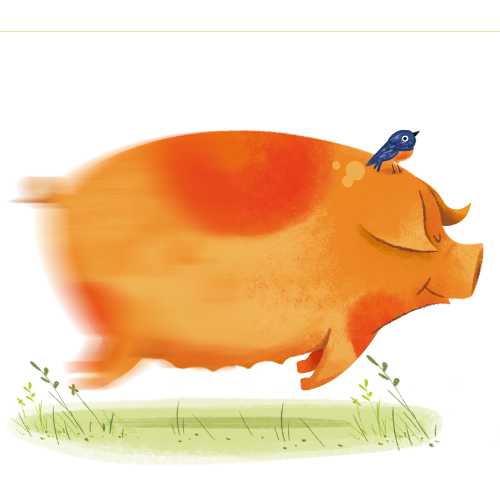Meat is too cheap
It’s probably too late to avoid going to hell in a handcart, but the intelligent world seems to be recognising finally that our billions of intensively farmed livestock are wrecking the planet we’ve chosen to live on. Wrecking it in terms of pollution of water air and land; in terms of global heating, clearly, and in terms of human health—and last but not least, the health of the farmed animals and the survival of the wild ones. Without wishing to sound pious, of course—it’s the last thing you could accuse me of, since i generally find there’s an amusing and practical way out of any difficulties—the answer in this area of interest lies in keeping fewer animals, in better conditions, and moving our diets away from cheap sausage rolls and kebabs and burgers.
Ah, there’s the problem. Governments the world over are scared—scared—of the end of cheap food. It’s what everybody has come to expect, and national budgets and costs of living and wages are premised on the notion that food will not really ever cost any more than it does now. In fact, food’s never been cheaper, in real terms. It used to take 50% or more of the average wage to pay for someone’s food needs. Now it takes about 8%, in our so called developed countries, allowing us to spend more on—cars, holidays, iphones, streaming; the list goes on, and it’s exactly what governments everywhere want us to do, and what lots of us now think is our right, and our only route to bliss and contentment.
Do we really eat 40 billion chickens a year globally? Of which 1 million might be free range or, better still, organic? Have you visited the slaughterhouse near Hamburg that slaughters 50,000 pigs a day? Is this not madness? And until someone actually has the nerve effectively to stop it, it’s a vicious circle that will only get worse. Why? Well, the economics of food, which as I’ve said already has to be cheap for political reasons, dictate that the slaughterhouse probably makes no money on the first 49,500 pigs it kills, because the profit margins are so thin. Its profit comes on the last 500 or so. Same with chickens-the farm that’s geared up to grow 50,000 birds a week makes nothing until it’s managed to produce 49,000 of them. The insatiable human drive to make money, and the constant downward pressure on prices, ensures that these operators have to keep growing.Without being too pun-ish, it’s a foul downward spiral leading to misery for animals, birds, consumers, workers and the environment.
But Government will not stop this—the cheap food paranoia, in some places leading to riots and overthrow of governments—you read about it more often than you imagine; the loss of jobs, the re-structuring of whole industries and the chaos that can bring with it, all adds up to too much trouble. This change has to be brought about by consumers, always. Reduce the amount of meat that you eat. Consider carefully—i am talking to myself here—what you pick up at your motorway services snack bar, or your party pies at the supermarket, or your ham and cheese croissant at your local coffee shop. Even if welfare doesn’t matter, the rest of it might. The only way this gargantuan industry is going to change its ways is if all of us stop eating their environmentally-wrecking rubbish, make a considerable tweak to our diets and insist on meat as a treat, something to be relished on occasions, not scoffed at every opportunity. There, I warned you. Pious, your middle name is Tim.





